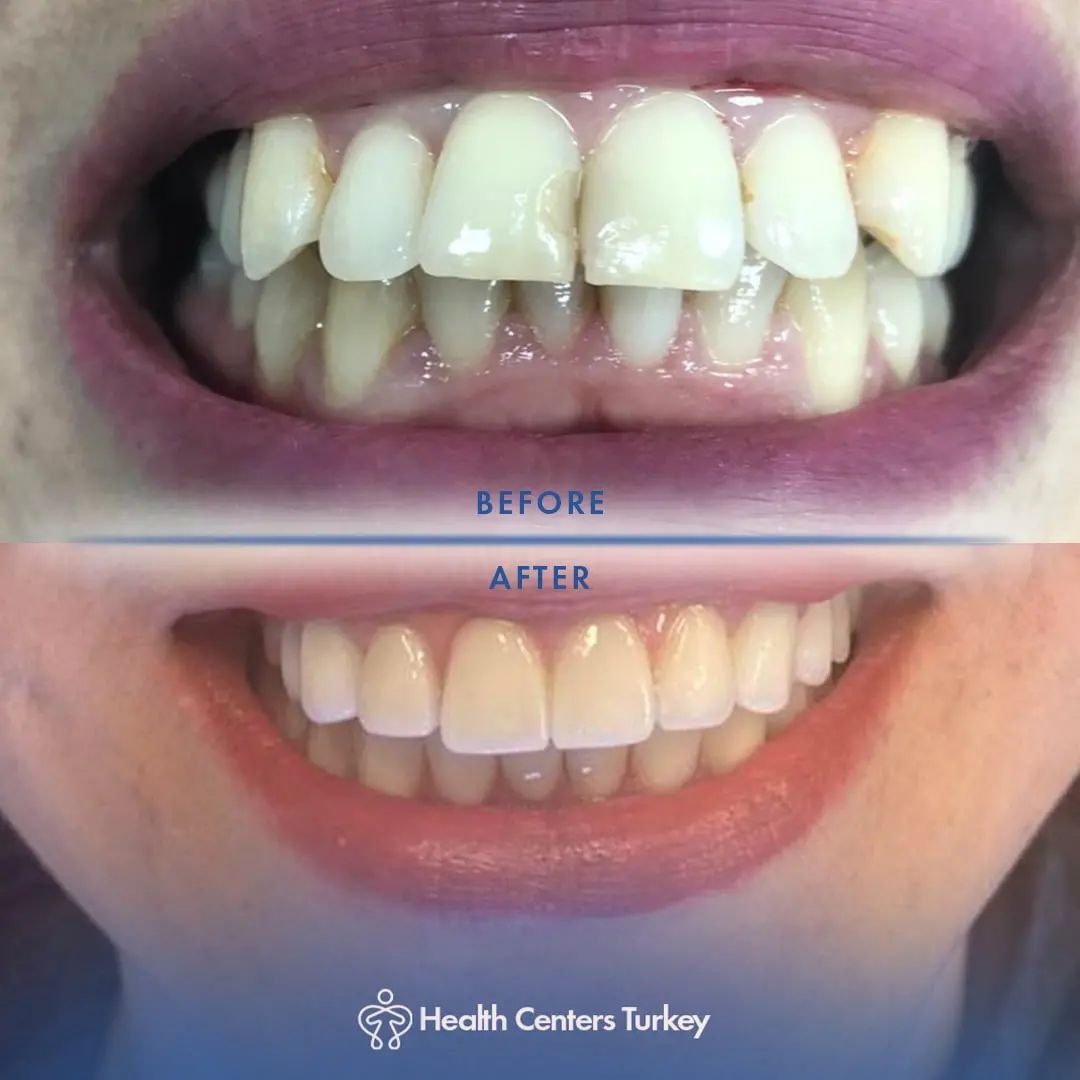Effective Orthodontic Treatments offered in Turkey
Effective Orthodontic Treatments offered in Turkey
Blog Article
Premium Cosmetic Dentistry Services Available in Turkey
Dental implants have turn into a popular answer for these trying to replace missing teeth. Understanding how these implants can affect adjacent teeth is important for anybody considering this procedure, in addition to for dentists and specialists concerned in dental care.

One significant side is that dental implants are designed to be anchored into the jawbone, which suggests they are impartial of adjacent teeth. Unlike dental bridges, which frequently require the alteration of neighboring teeth, implants can fill the gap with out compromising the health or structure of those surrounding teeth.
This independence helps maintain the integrity of adjacent teeth. When a tooth is misplaced, there is often a natural tendency for neighboring teeth to tilt or shift into the empty space. Such motion can result in misalignment, which can have an result on chew and overall oral health. By inserting an implant, you successfully prevent this potential shift, promoting higher alignment in the long term.
Investigate All-Inclusive Dental Services that Save You Money
Additionally, dental implants help preserve bone density within the jaw. A natural tooth root provides stimulation to the encircling bone, maintaining it healthy and powerful. When a tooth is missing, the bone can begin to deteriorate as a outcome of lack of stimulation. With a dental implant mimicking a natural root, bone loss could be minimized, which not directly benefits adjacent teeth by preserving the general structure of the dental arch.
While dental implants are advantageous, improper placement can influence neighboring teeth. If an implant is positioned too close to a different tooth, it could exert undue strain on that tooth, resulting in discomfort or potential injury. Proper planning and imaging strategies are essential for avoiding such points.
Latest Advances in Dental Implants in Turkey
Moreover, sustaining good oral hygiene is crucial after receiving an implant. If not correctly cleaned, surrounding teeth might turn out to be prone to dental points corresponding to decay or gum disease. This underscores the importance of diligent oral care following the procedure to ensure both implants and adjacent teeth stay healthy.
Regular dental check-ups are also important for monitoring the health of surrounding teeth. Dentists can determine any shifts or potential problems early, allowing for well timed interventions. This proactive method ensures that both the implant and adjacent teeth can coexist with out complications.
Find Your Path to a Beautiful Smile with High-Quality Dental Care
Another consideration is the impact of implants on chunk pressure. When a single tooth is missing, the load of chewing may shift to adjacent teeth, doubtlessly leading to put on or pressure. Implants restore correct chunk dynamics by redistributing forces in the mouth, which might protect surrounding teeth from undue stress.
Some patients might raise considerations concerning the appearance of dental implants. Well-placed implants can blend seamlessly with current teeth, improving total aesthetics. In contrast, failing to exchange a missing tooth can result in aesthetic points, together with collapsing of facial structure and changes in smile dynamics.
It's also value discussing the psychological features of dental health. Experiencing tooth loss can adversely affect one’s shallowness and willingness to have interaction socially. By restoring your smile with implants, you probably can positively affect not only your oral health but additionally your emotional well-being.
Long-term success of dental implants typically hinges on varied components, including the affected person's health, maintenance habits, and the standard of the initial process. If adjacent teeth are healthy and correctly cared for, the likelihood is that they'll proceed to thrive alongside the implants.
Receive Exceptional Dental Service in Turkey
In conclusion, dental implants play a crucial function in not just restoring individual smiles, however in click for more info preserving the health and structure of adjacent teeth. By stopping shifting, maintaining bone density, and redistributing chunk forces, implants can make sure that surrounding teeth stay in optimum condition. Proper placement, hygiene, and regular dental visits can further improve the benefits of dental implants, leading to a more healthy, extra assured smile for years to come.
- Dental implants might help preserve the alignment of adjacent teeth by offering a stable anchor, stopping adjacent teeth from shifting into the gap left by a missing tooth.
- The presence of an implant may stimulate bone development within the jaw, helping to protect the overall structure and integrity of the adjacent teeth.
- Unlike conventional bridges, implants don't require alteration of surrounding teeth, thus preserving their power and anatomy.
- Implants can enhance the distribution of chew forces evenly across the dental arch, lowering the stress on neighboring teeth throughout chewing.
- A well-integrated dental implant can lower the risk of bone loss in the area surrounding adjacent teeth, contributing to their long-term health and stability.
- The aesthetics of adjacent teeth could be improved because of the support provided by implants, which might lead to better general cosmetic outcomes.
- With proper placement, dental implants can prevent gum recession round adjacent teeth by maintaining sufficient dental structure.
- Implants might help mitigate the risks of periodontal disease in nearby teeth by promoting wholesome gum tissue and providing a washable surface.
- Long-term success of dental implants can result in improved oral hygiene routines, which in turn benefits the health of surrounding teeth.
- The improved useful ability of an implant can encourage patients to chew extra successfully, thus increasing saliva production and aiding in the protection of adjacent dental tissues.undefinedHow do dental implants have an effect on adjacent teeth?
What are dental implants and how do they interact with adjacent teeth?undefinedDental implants are artificial tooth roots which would possibly be surgically positioned into the jawbone. They present a steady basis for replacement teeth while guaranteeing minimal disruption to adjacent teeth, preserving their integrity and alignment. Experience Exceptional Dental Treatments in Turkey at Competitive Prices.
Modern Solutions for Dental Implants in Turkey
Can dental implants trigger problems for nearby natural teeth?undefinedGenerally, dental implants don't harm adjacent natural teeth. However, if the implant isn't placed appropriately or if there’s insufficient oral hygiene, it might result in complications corresponding to adjacent tooth decay or gum disease.

Will getting a dental implant change the way in which my adjacent teeth feel?undefinedMost patients report no change in the sensation of adjacent teeth after implant placement. However, it may take some time to adjust to the presence of the implant, similar to how one may adapt to different dental restorations.
Can dental implants assist protect the health of adjacent teeth?undefinedYes, dental implants may help preserve the health of adjacent teeth by stopping bone loss that may happen after tooth loss. This preservation helps the alignment of nearby teeth, decreasing the risk of shifting or misalignment.
Remarkable Teeth Clinics Accessible to International Patients in Turkey
Do I need to switch adjacent teeth when getting an implant?undefinedTypically, adjacent teeth do not need alteration when placing an implant. This is doubtless certainly one of the benefits of dental implants over traditional bridges, which often require reshaping adjacent teeth for support.
How does the therapeutic process of an implant have an result on close by teeth?undefinedThe healing process involves osseointegration, the place the implant fuses with the jawbone. During this time, adjacent teeth stay unaffected and retain their perform, though it’s important to follow post-operative care suggestions. Access Top-notch Implant Dentistry at Low Prices.
Prioritize Your Oral Health with Affordable Options in Turkey
Can dental implants result in bone loss round adjacent teeth?undefinedIf dental implants are placed properly and cared for adequately, they should not result in bone loss around adjacent teeth. In truth, they may help stimulate bone progress, combating the natural bone loss that often follows tooth extraction.
What precautions ought to I take to protect adjacent teeth after getting an implant?undefinedRoutine dental hygiene, including brushing and flossing, together with regular dental check-ups, website link is crucial. Avoiding onerous foods and following your dentist’s aftercare directions may also protect each the implant and adjacent teeth.
Is it widespread for adjacent teeth to shift after an implant is placed?undefinedIt's not typical for adjacent teeth to shift after an implant placement, especially when the implant is positioned correctly and maintained correctly. If there’s any movement, it could be due to other underlying points that ought to be evaluated by a dental skilled. Report this page